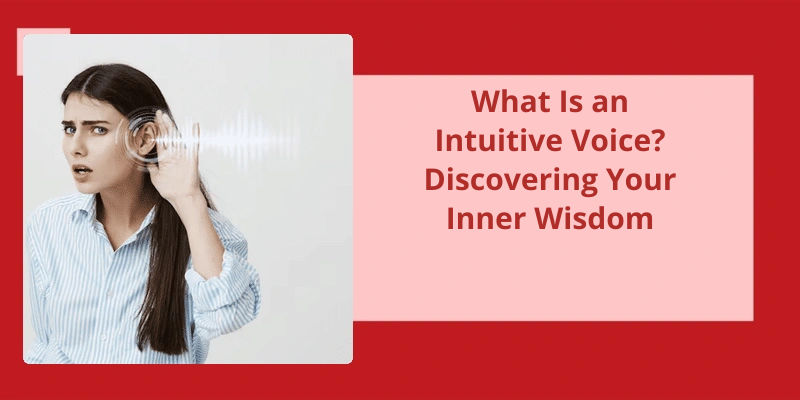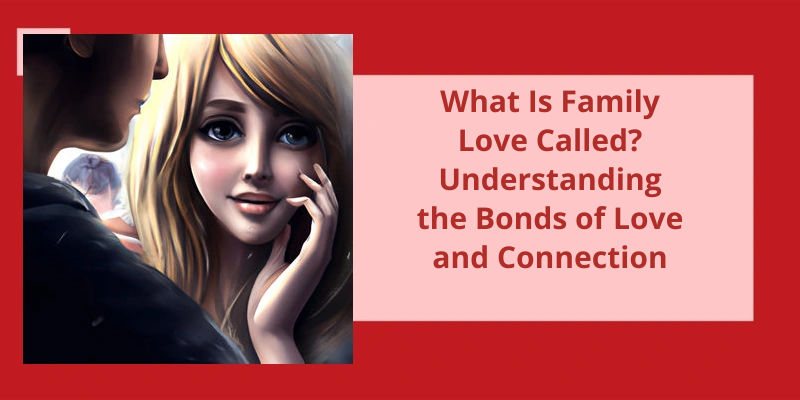This is the voice of intuition, an inherent ability in all humans that’s often ignored or dismissed. In essence, it’s a sort of internal compass that can provide invaluable insights and solutions to problems that logic alone cannot. Learning to listen and trust your intuitive voice can lead to greater clarity, confidence, and inner peace. So what exactly is this intuitive voice, and how can we tap into it’s wisdom?
What Is an Intuitive Person?
An intuitive person is someone who possesses an extraordinary sense of awareness and perception. This heightened sensitivity enables them to pick up on subtle cues, body language, and energy that others often overlook. Intuitive people have a deep understanding of human nature, and they can read peoples emotions and moods with ease. Their knack for predicting peoples thoughts and actions is remarkable and can often leave others in awe.
They can quickly sense if someone is in distress and offer help or comfort. Their ability to communicate and connect with others on a deeper level makes them excellent leaders, therapists, and healers. They can navigate complex social dynamics with ease and excel at building strong, meaningful relationships.
Intuition is a powerful tool that can be cultivated and used to our advantage. Their creativity, problem-solving skills, and ability to see the potential in things make them valuable assets in business and other creative endeavors. Whether we’re born with it or develop it over time, intuition can help us navigate life with more ease and security.
Understanding the difference between ego and intuition can be a critical aspect of personal growth and decision-making. Ego tends to be driven by fear and scarcity, while intuition operates from a place of abundance and confidence. By recognizing the characteristics of each voice, you can learn to tap into your intuition and make choices that align with your highest self.
What Is the Difference Between Ego and Intuitive Voice?
One of the biggest differences between ego and intuitive voice is the intention behind each. Ego is driven by a need for validation, control, and self-importance. It’s the voice that tells you that you’re better than others, you need to be in charge, and you should always be the center of attention. Intuition, on the other hand, comes from a place of surrender and trust. It’s the voice that guides you towards your true purpose and helps you make decisions that align with your higher self.
One way to distinguish between ego and intuition is to pay attention to the physical sensations that accompany each. Ego may cause your heart to race, your stomach to tighten, and your muscles to clench, while intuition may bring a sense of calm, clarity, and ease.
It’s also important to note that while ego is often associated with negative qualities like arrogance and selfishness, it isn’t inherently bad. In fact, a healthy ego is essential for developing a strong sense of self-worth and confidence. The key is to recognize when the ego is taking over and learn to balance it with the wisdom and guidance of your intuition.
When the ego is in charge, you may make choices based on external validation, fear, and scarcity. When intuition is guiding you, you’re more likely to make choices that align with your deepest desires, values, and purpose. By learning to distinguish between the two and cultivate your intuitive voice, you can live a more authentic, fulfilling, and empowered life.
Source: Ego vs. Intuition: Learning How to Identify Your Inner Voices
Many people struggle with the concept of intuition and may question whether it truly exists. However, it’s widely believed that intuition is an inner voice that can guide us towards what we truly want and need. By tapping into our intuition, we can find a greater sense of balance and clarity in our lives. But how exactly do we connect with this inner voice and learn to trust it? Let’s explore the different ways in which we can access intuition and begin to harness it’s power in our daily lives.
Is Intuition an Inner Voice?
Some people feel it as a gut feeling, others as a sensation somewhere in the body, while some experience it as a mental image or symbol. The important thing is to be open and receptive to what your intuition is telling you. It takes practice and patience to recognize the signals of your inner voice, but it’s a skill worth cultivating.
Intuition has long been associated with spirituality and mysticism, but modern science is increasingly recognizing it’s value in decision-making and problem-solving. Research has shown that people who trust their intuition are more confident in their choices and happier with the outcomes, even if they cant explain why they made a particular decision. This suggests that intuition may tap into an unconscious processing system that’s able to integrate multiple sources of information and detect patterns that the conscious mind may miss.
However, not all intuitive guidance is accurate or helpful. Sometimes our intuition can be clouded by fear, bias, or wishful thinking. It’s important to check in with our rational mind and gather information before making big decisions based solely on our intuition. Also, intuition isn’t a substitute for expertise or knowledge in a particular field. For instance, you may have a strong feeling about a medical condition, but you still need to consult with a doctor to confirm or disprove your intuition.
Intuition can also be developed through mindfulness and meditation practices that increase awareness of the present moment and our inner experience. By tuning out distractions and tuning into our intuition, we can increase our self-trust, creativity, and compassion.
Conclusion
This voice is what we call our intuitive voice, and it's a powerful tool that we often underestimate. When we learn to trust and listen to this voice, we can tap into a deeper level of understanding and make decisions that align with our true desires and purpose. Our intuitive voice is always present, even when we doubt ourselves or feel lost. By practicing mindfulness and self-awareness, we can tune in and strengthen our intuitive voice, unlocking it’s full potential. So next time you hear that inner voice nudging you in a certain direction, pay attention, for it may be guiding you towards your best self.






